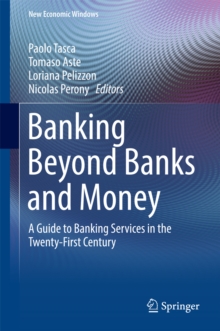
How Labor Powers the Global Economy : A Labor Theory of Capitalism Hardback
by Emmanuel D. Farjoun, Moshe Machover, David Zachariah
Part of the New Economic Windows series
Hardback
Description
This book presents a probabilistic approach to studying the fundamental role of labor in capitalist economies and develops a non-deterministic theoretical framework for the foundations of political economy.
By applying the framework to real-world data, the authors offer new insights into the dynamics of growth, wages, and accumulation in capitalist development around the globe. The book demonstrates that a probabilistic political economy based on labor inputs enables us to describe central organizing principles in modern capitalism.
Starting from a few basic assumptions, it shows that the working time of employees is the main regulating variable for determining strict numerical limits on the rate of economic growth, the range of wages, and the pace of accumulation under the present global economic system.
This book will appeal to anyone interested in how the capitalist mode of production works and its inherent limitations; in particular, it will be useful toscholars and students of Marxian economics. “Emmanuel Farjoun and Moshé Machover, follow up their pathbreaking work on the application of statistical physics methods to political economy in this book with David Zachariah, in which they develop methods for making educated and structured estimates of stylized facts applicable to capitalist economies.
There’s a lot for economists and anyone interested in the political economy of capitalism to learn from their reasoning on these issues, including their novel and challenging suggestion of bounds on the rates of increase of use-value productivity of labor, and on the range of variation of the wage share.”Duncan K.
Foley, Leo Model Professor of Economics, New School for Social Research
Information
-
Out of stock
- Format:Hardback
- Pages:154 pages, 18 Illustrations, color; 4 Illustrations, black and white; XII, 154 p. 22 illus., 18 illu
- Publisher:Springer Nature Switzerland AG
- Publication Date:13/04/2022
- Category:
- ISBN:9783030933203
Other Formats
- Paperback / softback from £80.59
Information
-
Out of stock
- Format:Hardback
- Pages:154 pages, 18 Illustrations, color; 4 Illustrations, black and white; XII, 154 p. 22 illus., 18 illu
- Publisher:Springer Nature Switzerland AG
- Publication Date:13/04/2022
- Category:
- ISBN:9783030933203










